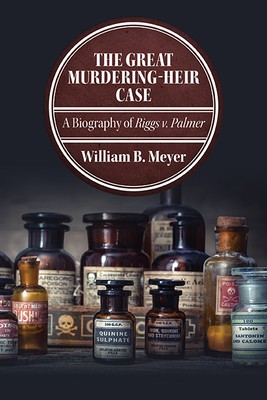
- We will send in 10–14 business days.
- Author: William B Meyer
- Publisher: State University of New York Press
- ISBN-10: 1438496346
- ISBN-13: 9781438496344
- Format: 15.2 x 22.9 x 1.8 cm, hardcover
- Language: English
- SAVE -10% with code: EXTRA
Reviews
Description
In 1882, Elmer Palmer was convicted of poisoning his grandfather Francis in rural northern New York State. In a famous decision in 1889, the New York Court of Appeals denied Elmer the right to inherit from Francis, even though the statute governing wills seemed to entitle him to the legacy. Twentieth-century commentators have treated Riggs v. Palmer as a model of the judicial craft and a key to understanding the nature of law itself; however, the case's history suggests that it is neither of these things. In its own time, the decision was radically at odds with legal doctrine as then understood by American judges. Rather than a quintessentially principled ruling, it was most likely ad hoc and ad hominem, concocted to thwart a particular individual thought to have been punished too lightly for his crime. The book illustrates the value of two approaches to interpreting decisions, those of "case biography" and "legal archaeology." Both draw upon historical sources neglected in conventional legal scholarship. In doing so, they may challenge--or confirm--the validity as precedent today of classic cases from the past.
EXTRA 10 % discount with code: EXTRA
The promotion ends in 18d.18:05:22
The discount code is valid when purchasing from 10 €. Discounts do not stack.
- Author: William B Meyer
- Publisher: State University of New York Press
- ISBN-10: 1438496346
- ISBN-13: 9781438496344
- Format: 15.2 x 22.9 x 1.8 cm, hardcover
- Language: English English
In 1882, Elmer Palmer was convicted of poisoning his grandfather Francis in rural northern New York State. In a famous decision in 1889, the New York Court of Appeals denied Elmer the right to inherit from Francis, even though the statute governing wills seemed to entitle him to the legacy. Twentieth-century commentators have treated Riggs v. Palmer as a model of the judicial craft and a key to understanding the nature of law itself; however, the case's history suggests that it is neither of these things. In its own time, the decision was radically at odds with legal doctrine as then understood by American judges. Rather than a quintessentially principled ruling, it was most likely ad hoc and ad hominem, concocted to thwart a particular individual thought to have been punished too lightly for his crime. The book illustrates the value of two approaches to interpreting decisions, those of "case biography" and "legal archaeology." Both draw upon historical sources neglected in conventional legal scholarship. In doing so, they may challenge--or confirm--the validity as precedent today of classic cases from the past.


Reviews